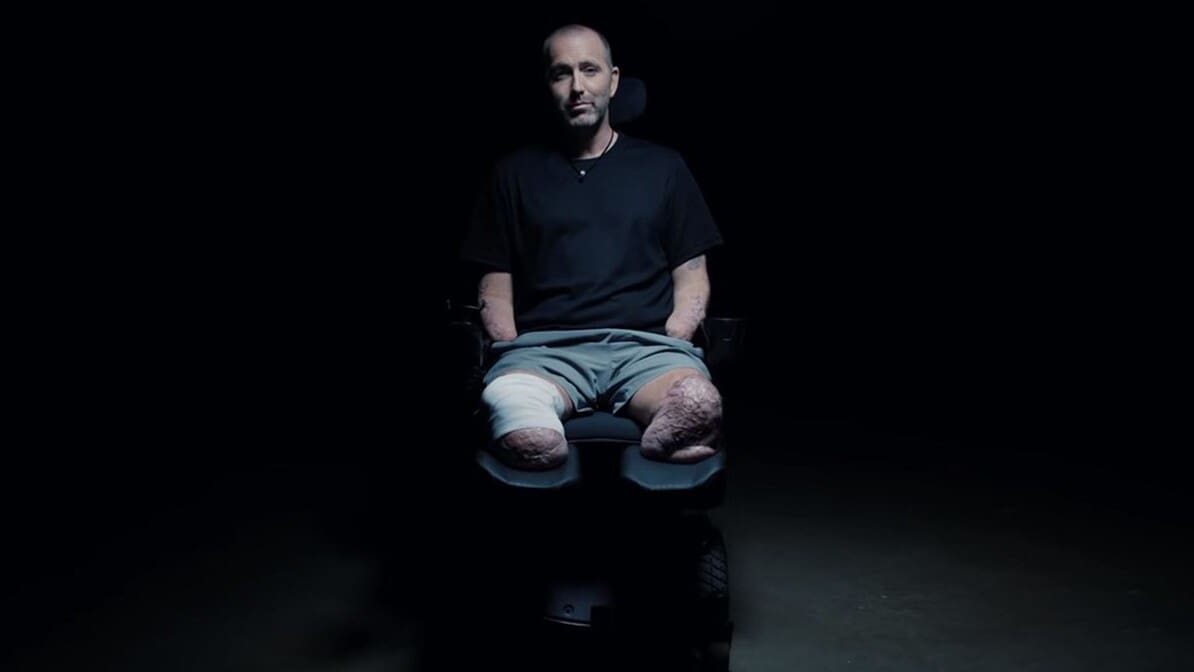
Waiting for Heaven — Self-Addiction: An Example
 Excerpt from Waiting for Heaven: Freedom for the Incurable Addiction to Self by Larry Crabb
Excerpt from Waiting for Heaven: Freedom for the Incurable Addiction to Self by Larry Crabb
Chapter One
Self-Addiction: An Example
I just noticed a clear example of a cowardly tendency of mine. This example managed to turn on the proverbial light, brightly. With disturbing clarity I’m seeing that a self-protective fainthearted tendency within me reflects to a frightening degree that feeling good means more to me than loving well, at least sometimes. This is one of those times.
It’s early Sunday morning, I’ve spent the last several hours reading a little book titled “How to Die”, a compilation of an ancient sage’s thoughts on the matter. Seneca, a first century Roman philosopher, an early Stoic, lost favor with Nero after serving more than a decade as his mentor and advisor. In a fit of irrational anger, the deranged emperor ordered his faithful companion to kill himself. Seneca willingly obeyed and brought on his own death, in 65 A.D. In the years before his suicide, the respected philosopher had written extensively to friends and followers proposing what it would mean to die a good death after living a good life. It’s quite likely Seneca thought he scored well on both counts.
James S. Roman, a professor of classics at Bard College, translated and edited Seneca’s voluminous writings and published “How to Die” in 2018. When I happened across the title, I bought the book and eagerly opened it. I’m no longer young. I thought the ancient philosopher might have something interesting to say, perhaps something personally helpful.
But a shameful tendency became more visible to me as I slowly read the 121 pages of Romm’s English translation. Another 90 pages record Seneca’s material in its original Latin which, despite two years of high school Latin, I couldn’t read, not a word.
True to his stoicism, Seneca was telling me how I could face death without fear if I lived a good life from which one day I could nobly exit. Few if any of his recommendations struck me as worth considering. My strong disagreement with his teaching, to which I’m entitled, developed into a cavalier smugness toward Seneca, to which I’m not entitled.
Three examples will make the point. In each one I briefly quote Seneca then record what in reaction went through my mind.
Example #1:
Seneca: “He lives badly who does not know how to die well.” (p.4.)¹
Me: “Where does this guy get off pontificating on such a weighty topic? If he seriously wanted to know how to live a purposeful life then die a purposeful death, realizing that a good life and death are both purposeful, he could have studied the life and death of Jesus. Three of the four gospel records of Christ’s life and death, Matthew, Mark, and Luke, were written before Seneca died. Seneca became a young senator in Rome a few years after Jesus was crucified. It’s likely he at least heard of Jesus. And yet he doesn’t give a second look into the wisest man who ever lived. And I’m supposed to revere Seneca’s good judgment?”
Example #2:
Seneca: “Make your life joyful by putting aside all anxiety about keeping it” (p. 104)¹.
Me: “Easier said then done. Is Seneca telling me to live in denial of the possibility of a painful death in order to not mind dying? Or is he suggesting that the desire to stay alive is somehow unhealthy? Only Christianity makes it possible to face death, even a painful death, with comfort-disturbing yet gladly anticipated joy, not the prospect of painless non-existence (if there is such a thing), but the joy of knowing that every self-aware Christian wants most what lies ahead on the other side of death. Like a good Stoic, Seneca values undisturbed peace, Buddha-like peace, as a person’s greatest good. But Christianity offers a Jesus-like peace that supports us in living and loving well even when life is disappointing and heartbreaking. Jesus-like peace doesn’t suffocate the pain, it releases purpose through pain. Is there no place for peace-disturbing lament in Seneca’s formula for a good life and death? It would seem he wants us to whistle a pleasant tune as we stroll through a cemetery.”
Example #3:
Seneca: “… what news is it that someone has died whose life was nothing else than a journey toward death?” (p. 98)¹.
Me: “Seneca is wrong, yet again. For a Christian, existence is a journey through a God-delighting life, a meaningful and joyful if imperfect and difficult journey that is moving on a straight path to the never ending joy everyone longs to fully experience. This supposedly brilliant philosopher is missing out on the foundational truth that makes life good and makes death far better, forever. No doubt Seneca’s intelligence quotient would rank him in the genius category, but the man was a fool.”
I don’t suppose you missed the odor of uncharitable smugness leaking out of me toward this lost fool, an attitude devoid of even the faintest fragrance of love. As I read his writings, I felt not even a dash of burdened concern for Seneca’s soul. I affirm the Christian perspectives I stated but I’m shamed by the merciless passion with which I expressed them.
But why? Why the self-stained attitude? Why the ego building pleasure in asserting what I know that Seneca didn’t? What was going on in me that poured out in such a sub-Christian manner toward a fellow human being whom God loves? A few undeveloped thoughts:
- Is my felt superiority a defensive maneuver? Does it defend me against some hidden threat?
- Could my arrogant dogmatism be protecting me from a profound spiritual discomfort I don’t want to face?
- Am I scared? Is there a dread lodged deep within me — a dread of some extremely disquieting terror — that when touched provokes more than a hint of anger? Might my anger perversely stir up the good feelings I crave?
An uncomfortable thought: if I were the truly convinced and committed Christian I sometimes believe I am, a man settled firmly in longing to live for Jesus at any cost as I wait patiently for the no-cost already-paid-for-life that awaits me when I die, would I react to stubbornly wrong teaching with such snobby smugness? Might I be a Christian poseur, little more than a spiritual persona impressing others with apparent maturity while I look down my nose on those who hold to a foolish misunderstanding about life? Wouldn’t a mature disciple, a resolute imitator of Christ, feel a compassionate burden for the countless Senecas who life figured out all wrong?
I have little choice but to draw a regrettable conclusion: something is seriously off track in my faith. I think I now know what it is. No doubt much else is off track, and I anticipate the Spirit’s light shining even more brightly in the days ahead on my twisted faith. No one gets everything right this side of heaven. But there is one significant lack that is now visible to my partially Spirit-enlightened mind. And I’m grateful that I’m seeing it. It augurs well; more growth is on its way. What I am now recognizing in me, deficient faith in a particular form, seems important enough, troubling enough, and common enough to write about it. Hence, this book.
I’m surprised. Since the publication of my most recent book, When God’s Ways Make No Sense², I’ve been wondering, with not a little bit of relief, if maybe I don’t have another book in me, one I firmly want to write. Maybe I’ve written all the books God had in mind to bear my name on the front cover. Maybe it’s time to wrap up my writing career. Age, the arbiter of much that we do and don’t do, may be speaking to me.
And then this: a hard-to-resist urge to do some concerted thinking about a flaw in my understanding of life that I doubt is unique to me. Perhaps it is dangerously widespread and widely unrecognized in Christian community. If not seen and confessed in a way that leads to conviction, repentance, and freedom, this lack, this misunderstanding of the spiritual journey, could be keeping many of us skipping about in ankle-deep Christianity thinking we’ve bravely dived into the deep end of the pool.
What am I discerning that the Spirit’s revealing light is exposing in the realms of darkness still within me? It’s this:
A Refusal to Wait!
I want now, in this life, what God only promises for later, in the next life. I’m aware that when Jesus returns He will make all things new. But couldn’t He straighten out a few more things before then? There are times I get impatient with God. I don’t always appreciate the plot He has come up with for how my life is unfolding.
Among much else, I want an experience in this life that shuts out all the stress brought on by difficulties, that numbs all my insecurity, that pleasantly weakens my awareness of failure. I want such an experience, if even for only a few delicious moments. But God disappoints me. He seems only to give me what supports my walk with Jesus even as difficulties mount, insecurity deepens, and egregious failures continue. I am convinced I need something else.
I’m never free of concern that more trouble is waiting around the next bend. I never rest so completely in God’s boundless love that all remnants of insecurity disappear. And I never become so compelled by God’s good plan for my life that sin loses all appeal. The result? I sometimes take matters into my own hands to provide for myself the experience I want, a kind of pleasure so consuming that trouble seems far away, that rejection no longer scares me, and that failure becomes either unrecognized or unconvincing.
If Peter were speaking to me right now, I think I know a little of what he would say. In his old age, not too long before he was crucified upside down, he wrote a letter to several groups of Christians whose lives were not going well. They were suffering. And Peter told them to not let relief become their goal. Instead he warmly encouraged these hard pressed believers in God’s goodness to put their “hope fully on the grace that will be brought” to them, not in this life, but “at the revelation of Jesus Christ,” (1 Peter 1:13)³, referring to His second coming when He will make all things new, right every wrong, dry every tear, and satisfy every longing alive in our glorified souls.
Until then Peter tells us, Wait! What we want most lies ahead. Demand nothing now. Expect everything then. Receive every good thing that comes to you now. Enjoy each one, with thanks. But realize this life will never fully satisfy your deepest thirst. Paul agrees with Peter. He told the Roman Christians to continue to “groan inwardly” and to “wait eagerly” (Romans 8:23)4.
A Christian who is waiting to later receive everything the human heart longs for while reason for lament continues now will not satisfy his or her ego as I did and sometimes still do, by responding to someone’s wrong thinking, whether in Seneca or a spouse or child or friend, with patronizing smugness that elevates one’s self above another, an elevation that feels good, a feeling that smells of pride. Is this nuanced proof of my hidden relational addictions?
Waiting on God’s timetable, frustrating though it may be, will free us to live a good life now marked by increasingly consistent self-denying other-centeredness and always deepening appreciation of forgiveness, no longer so caught up in providing for our own good feelings, for ecstatic but shallow temporary pleasure.
Waiting Christians will more quickly recognize temptation for what it is, an opportunity to arrange for oneself an experience that God promises to provide later. And waiting Christians will discover new strength to resist the allure of such opportunities. Christians who learn to wait will live a better life now and will die a better death when heaven’s gates swing open. Could this be the narrow road to freedom?
Lord, teach me to wait.
…
Order your copy of Waiting for Heaven: Freedom from the Incurable Addiction to Self by Larry Crabb
Trending Now
Sign up today for your Inspiration Today Daily Newsletter
Supercharge your faith and ignite your spirit. Find hope in God’s word. Receive your Inspiration Today newsletter now!
Larry Crabb
Dr. Larry Crabb has authored over 25 books and is the founder of NewWay Ministries and co-founder of Larger Story. He earned his Ph.D. in Clinical Psychology and has been a Distinguished Scholar in Residence at Colorado Christian University for 24 years. He has been married to his middle school sweetheart, Rachael, for over 50 years, and they have two sons and five grandchildren. Learn more at LargerStory.com
Related Articles
January 28, 2026
I Just Knew It Was God: From Searching to Finding Faith
From the outside, Ekaterina’s life looked successful. She had a college degree, a strong career,…
January 26, 2026
How to Overcome Old Wounds with Resilience
How Do You Deal with Old Wounds? Everyone is talking about trauma, but very few are talking about…
November 21, 2025
Thank You … Lord
Gratitude transforms our lives and draws us closer to God. This article explores how practicing…
October 27, 2025
So, Is God Good?
Many people wrestle with the question, is God good, especially when life brings pain and loss.…
Next Steps To Strengthen Your Walk
Inspiration Today Newsletter
Supercharge your faith and ignite your spirit. Find hope in God’s word. Receive your Inspiration Today newsletter now!
Christian Articles
Find articles to strengthen your walk and grow your faith. We have a wide range of topics and authors for you.
Submit A Prayer Request
We are here for you. Simply click on the button below to reach us by form, email or phone. Together we will lift our hearts and voices with you in prayer.





